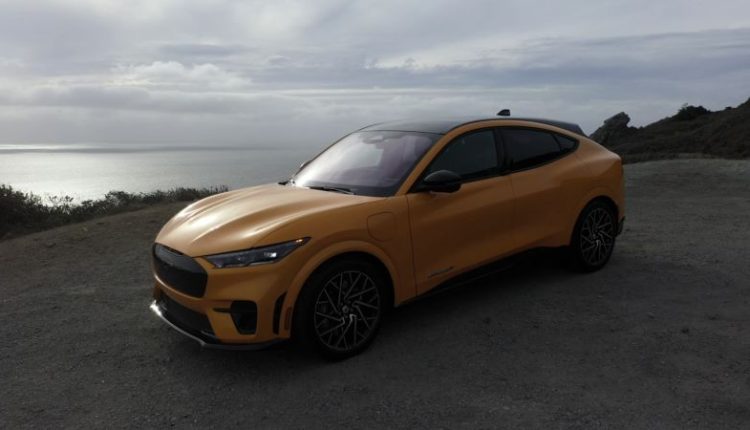Ford is pausing work on a new, $3.5 billion electric vehicle battery plant in Michigan, even as the transition to electric vehicles has become a major sticking point in a United Auto Workers strike against automakers Ford, GM and Stellantis.
No final decision has been made on whether the plant will, ultimately, become operational, said Ford spokesman T.R. Reid.
If completed, the plant will be located on a 950-acre site in southern Michigan near the town of Marshall. Ford’s plans were to employ 2,500 people when the plant opened for production in 2026. Ford had had announced plans for the battery factory last February.
“We’re pausing work and limiting spending on construction on the Marshall project until we’re confident about our ability to competitively operate the plant,” said Reid in an emailed statement. “There are a number of considerations.”
Ford, along with General Motors and Stellantis, is currently facing a strike by the United Auto Workers. Reid would not say whether the UAW contract negotiations were among the considerations mentioned.
Because assembly of electric vehicles takes significantly less labor than building gasoline-powered vehicles, the union is concerned that the automakers’ plans to eventually shift to all-electric lineups will eventually mean more job losses and smaller paychecks. Job security, in fact, has become a major issue in negotiations.
Some politicians have also attacked Ford’s reliance on “Chinese technology” in the factory, according to Reuters reports, although the factory was to be owned and operated by Ford alone.
Plans called for the plant to operate as a wholly owned subsidiary of Ford Motor Co. but build batteries using “knowledge” and services from the Chinese company Contemporary Amperex Technology Co., or CATL. CATL, the world’s largest battery manufacturer, also supplies batteries to Tesla.
Congress passed the $430 billion Inflation Reduction Act (IRA) legislation last year to restructure how EV tax credits are allotted. Under the law, consumers buying an electric vehicle will be eligible for tax credits of varying amounts, depending on whether the vehicle itself, as well as its batteries and battery components, were manufactured and whether the battery minerals were extracted in the United States.
The battery plant was planned to operate in addition to plants in Kentucky and Tennessee that Ford announced in 2021. Ford is building those plants with SK Innovations, a company based in South Korea. Ford has said it plans to be able to produce 2 million electric vehicles globally by late 2026.
Read the full article here

